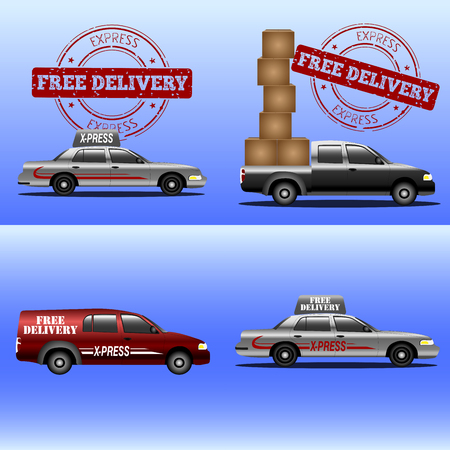1. Introduction
When it’s time to part ways with your car, you have two main options: trading it in at a dealership or selling it privately. Each approach has its advantages and drawbacks, and choosing the right one can significantly impact how much money you walk away with. Understanding these differences can help you make an informed decision that best fits your financial and lifestyle needs.
Pros and Cons of Trading In
Trading in your car at a dealership is the most convenient option. You can hand over your vehicle and apply its value directly toward your next purchase. However, convenience comes at a cost—you likely won’t get as much money as you would from a private sale.
| Pros | Cons |
|---|---|
| Quick and hassle-free process | Lower value compared to selling privately |
| No need to deal with buyers or paperwork | Dealerships factor in resale costs, reducing your car’s trade-in value |
| Potential tax savings when trading in for another car | Offers are often below market value |
Pros and Cons of Selling Privately
Selling your car privately takes more effort but can yield a higher return. You set the price, negotiate with buyers, and maximize the value of your vehicle.
| Pros | Cons |
|---|---|
| Typically results in a higher sale price | Time-consuming |
| More control over pricing and negotiations | Requires effort in advertising and meeting buyers |
| You keep the full amount without dealership deductions | Potential scams or unreliable buyers |
Why This Decision Matters
Your choice between trading in and selling privately depends on your priorities. If convenience and speed are most important, trading in might be the best option. However, if maximizing your return is your top goal, selling privately might be worth the extra effort. By weighing the pros and cons, you can choose the approach that best fits your needs and financial situation.
2. Trade-In: Convenience vs. Lower Value
When it comes to trading in your car at a dealership, convenience is the biggest advantage. Instead of dealing with the hassle of finding a private buyer, handling test drives, and negotiating prices, you can simply bring your vehicle to the dealership, get an offer, and apply it toward your next purchase. This saves a lot of time and effort.
Why Trade-Ins Are Convenient
Trading in your vehicle is a straightforward process. The dealership handles all the paperwork, title transfer, and any loan payoff if you still owe money on the car. You don’t need to worry about advertising, meeting with strangers, or dealing with financing issues that private buyers might have.
What to Expect in Trade-In Value
While the process is simple, one downside of trading in your car is that dealerships typically offer less money compared to selling privately. Dealerships need to make a profit, so they must account for costs like reconditioning, marketing, and potential resale margins. This means you might receive an offer lower than your car’s market value.
Trade-In vs. Private Sale: A Comparison
| Aspect | Trade-In | Private Sale |
|---|---|---|
| Convenience | High – Quick, easy, dealership handles paperwork | Low – Requires effort in listing, meeting buyers, handling payments |
| Sale Price | Lower – Dealerships offer wholesale value | Higher – Can sell closer to market value |
| Time Required | Minimal – Often completed in one visit | Varies – May take days or weeks to find a buyer |
| Hassle | Low – No need to meet private buyers | High – Need to advertise and negotiate |
The trade-off between convenience and value is the key decision when trading in. While you lose out on potential profit, you gain a hassle-free experience that allows you to focus on purchasing your next vehicle without the stress of a private sale.

3. Three, Selling Privately: Higher Profit but More Effort
Selling your car privately is the best way to get the most money for it, but it also comes with more responsibilities. Unlike trading it in at a dealership, selling privately means you have to handle everything yourself—from setting the right price to advertising, meeting potential buyers, and finalizing the transaction.
Why Selling Privately Can Get You More Money
Dealerships need to make a profit when they resell your car, so they’ll typically offer you less than its market value. When selling privately, you eliminate the middleman, allowing you to negotiate directly with buyers and potentially get a better price.
The Effort Involved in Selling Privately
While the potential for a higher selling price is attractive, selling privately takes time and effort. Here are the key steps involved:
- Pricing Your Car: You’ll need to research your car’s market value using tools like Kelley Blue Book, Edmunds, or local listings.
- Advertising: Posting your car on platforms like Craigslist, Facebook Marketplace, Autotrader, and local classifieds helps attract buyers.
- Meeting Buyers: You’ll have to schedule meetups, answer questions, and allow test drives.
- Negotiating: Buyers will likely try to negotiate the price, so be prepared for some back-and-forth.
- Handling Paperwork: You’ll need to provide a bill of sale, sign over the title, and follow any state-specific requirements.
Potential Risks and Downsides
Selling privately also carries risks that don’t exist with a trade-in:
| Risk | Description |
|---|---|
| Dealing with Strangers | You’ll meet potential buyers you don’t know, which can be uncomfortable or even unsafe. |
| Scams | Some buyers may try to use fake checks, PayPal scams, or other fraudulent payment methods. |
| Time Commitment | The process of finding a buyer, scheduling meetings, and negotiating can take weeks or even months. |
| Buyers Remorse | If the buyer has issues with the car later, they may try to demand a refund or cause trouble. |
Is Selling Privately Right for You?
Selling privately is worth considering if you’re not in a rush to sell and are comfortable putting in the work. If you’re patient, willing to handle negotiations, and take the right precautions to avoid scams, you could end up with significantly more money compared to a trade-in.
4. Factors That Affect Your Car’s Resale Value
When deciding between trading in your car or selling it privately, several factors can influence how much money you’ll get. Understanding these factors can help you make the best choice and maximize your car’s value.
Vehicle Condition
The overall condition of your car plays a significant role in determining its resale value. Dealerships assess vehicles based on wear and tear, exterior damage, and interior cleanliness. If your car has dents, scratches, or mechanical issues, a dealership may offer a lower trade-in value. On the other hand, buyers in a private sale are often more willing to negotiate based on the car’s condition.
Mileage
Mileage is a big factor in pricing a used car. Generally, the lower the mileage, the more your car is worth. High mileage signals more wear and tear, leading to lower offers. Dealerships follow set depreciation schedules, while private buyers may be more flexible depending on their needs and budget.
Market Demand
The demand for your car’s make and model can significantly impact pricing. Some vehicles hold their value better due to popularity, reliability, or fuel efficiency. Dealerships price trade-ins based on local demand and inventory. In a private sale, you may find a buyer willing to pay more, especially if your car is a sought-after model.
Timing
When you sell your car can affect the amount you get. For example, convertibles sell better in the summer, while SUVs and trucks are more desirable in the winter. Dealerships adjust trade-in offers based on seasonal demand, while private buyers may be looking for a specific type of vehicle based on their needs.
Comparison of Trade-In vs. Private Sale Factors
| Factor | Trade-In | Private Sale |
|---|---|---|
| Condition | Dealers may deduct for cosmetic and mechanical issues. | Buyers may be more forgiving but expect a lower price. |
| Mileage | Follow set depreciation guidelines. | Some buyers may pay more for well-maintained high-mileage cars. |
| Market Demand | Pricing is based on dealership inventory and trends. | You can negotiate based on buyer interest. |
| Timing | Seasonal trends affect trade-in offers. | Selling at the right time can bring a higher price. |
5. Five. Which Option Is Better for You?
Deciding between trading in your car and selling it privately comes down to what matters most to you: convenience or getting the highest possible price. Each option has its pros and cons, so let’s break it down.
Prioritizing Speed and Convenience
If you want a quick and hassle-free process, trading in your car is the way to go. Dealerships handle the paperwork, and you can apply the trade-in value directly toward your next purchase, reducing the amount you need to finance. However, this convenience comes at a cost—trade-in offers are generally lower than what you could get from a private sale.
Benefits of Trading In:
- Fast and easy process
- No need to deal with buyers or negotiations
- Potential tax savings in some states when applying the trade-in value toward a new car
Maximizing Profit
If getting the most money for your vehicle is your top priority and you don’t mind putting in some effort, selling privately is your best option. Private buyers typically pay more than dealerships, but youll need to handle advertising, meeting with potential buyers, and managing the paperwork yourself.
Benefits of Selling Privately:
- Higher potential payout
- More control over pricing and negotiations
- Ability to sell to a buyer who will appreciate the car’s value
Trade-In vs. Selling Privately: A Quick Comparison
| Factor | Trade-In | Selling Privately |
|---|---|---|
| Time Required | Quick (same day) | Can take weeks |
| Selling Price | Lower | Higher |
| Effort Needed | Minimal | High (ads, negotiations, paperwork) |
| Safety & Security | Safe (dealing with a dealership) | Riskier (meeting strangers, scams) |
| Tax Advantages | Possible tax savings in some states | None |
Making Your Decision
If you value time and ease, trading in your car is the best choice. But if you’re willing to put in the effort for a better price, selling privately could be worth it. Consider your priorities and go with the option that best fits your needs.
6. Conclusion & Final Tips
Deciding between trading in your car and selling it privately can have a big impact on how much money you walk away with. Both options have their pros and cons, and the best choice depends on your priorities—whether its maximizing profit, convenience, or speed.
Breaking Down the Key Differences
| Trade-In | Selling Privately |
|---|---|
| Convenient and quick process | Requires effort in listing and meeting buyers |
| Lower offer compared to private sale | Higher potential selling price |
| Avoids paperwork hassles | Must handle all paperwork yourself |
| May provide tax savings on a new car | No direct tax savings |
Tips for Making the Best Decision
1. Assess Your Priorities
If you value convenience and a hassle-free experience, trading in your car is the better choice. However, if you are willing to put in some extra effort to get the best price, selling privately is the way to go.
2. Research Market Prices
Check online pricing tools like Kelley Blue Book (KBB) or Edmunds to gauge the market value of your car. Knowing your car’s worth helps you negotiate a fair deal in both trade-in and private sale scenarios.
3. Consider the Time Factor
If you need cash quickly or don’t want to deal with potential buyers, trade-in is the faster option. Selling privately could take weeks, depending on demand in your area.
4. Prepare Your Car for Sale
Regardless of your choice, cleaning your car, making small repairs, and gathering necessary documents (like the title and maintenance records) can help you get a better price.
5. Compare Dealer Offers
Before accepting a trade-in offer, get quotes from multiple dealerships. Some dealers may offer better trade-in deals depending on demand for your car.
Final Thought
Ultimately, the best choice depends on your situation. If you want a simple, fast transaction, trade-in makes sense. If you’re willing to invest time for a better profit, selling privately is your best bet. Either way, do your research and negotiate to ensure you get the best deal possible.


